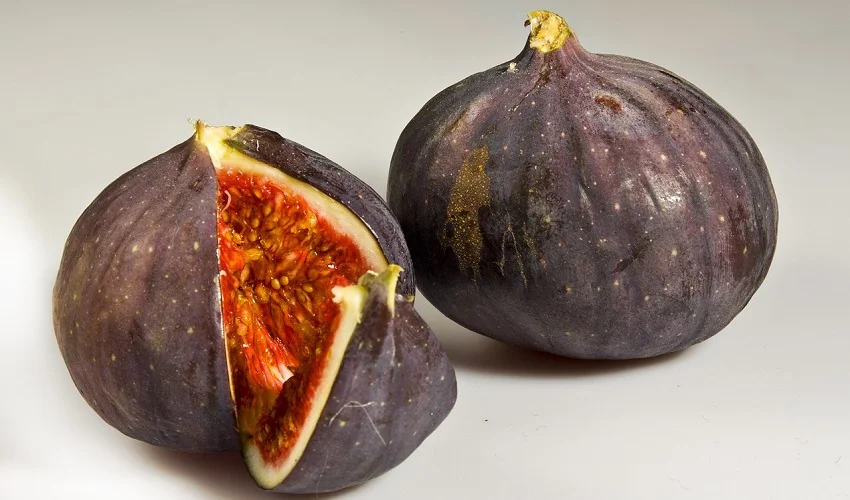What is anjeer?
Anjeer, also known as fig, is a fruit that is widely consumed for its numerous health benefits. It is particularly popular among individuals with diabetes due to its low glycemic index. This means that anjeer does not cause a rapid increase in blood sugar levels, making it a suitable choice for those managing their blood sugar. Additionally, anjeer is rich in fiber, which aids in digestion and helps regulate blood sugar levels. It also contains antioxidants that can help reduce inflammation and improve overall health. Incorporating anjeer into a balanced diet can be beneficial for individuals with diabetes.
Nutritional value of anjeer
Anjeer, also known as figs, is a highly nutritious fruit that offers several health benefits, especially for individuals with diabetes. It is packed with essential vitamins, minerals, and dietary fiber, making it an excellent addition to a diabetic diet. Anjeer is rich in potassium, which helps regulate blood pressure and reduce the risk of cardiovascular diseases. Additionally, it contains a significant amount of dietary fiber, which aids in blood sugar control and promotes healthy digestion. The natural sugars present in anjeer are slowly absorbed by the body, preventing sudden spikes in blood sugar levels. Furthermore, anjeer is a good source of antioxidants, which help protect the body against oxidative stress and inflammation. Including anjeer in your diet can contribute to better blood sugar management and overall health for individuals with diabetes.
Effects of anjeer on blood sugar levels
Anjeer, also known as figs, has been found to have positive effects on blood sugar levels. Studies have shown that consuming anjeer can help regulate blood glucose levels, making it a beneficial fruit for individuals with diabetes. The high fiber content in anjeer slows down the absorption of sugar in the bloodstream, preventing sudden spikes in blood sugar levels. Additionally, anjeer contains natural compounds that have been found to enhance insulin sensitivity, further aiding in blood sugar control. Including anjeer in a balanced diet can be a healthy and delicious way to manage diabetes.
Benefits of Anjeer for Diabetes
Rich in fiber
Anjeer, also known as figs, are an excellent addition to a diabetic diet due to their high fiber content. Fiber plays a crucial role in managing blood sugar levels as it slows down the absorption of glucose in the bloodstream. This helps prevent sudden spikes in blood sugar and promotes better glycemic control. Additionally, the fiber in anjeer promotes satiety, making you feel fuller for longer and reducing the risk of overeating. Incorporating anjeer into your diet can also aid in weight management, which is important for individuals with diabetes. Overall, the rich fiber content of anjeer makes it a beneficial fruit for those looking to maintain stable blood sugar levels and improve their overall health.
Low glycemic index
Anjeer, also known as figs, have a low glycemic index, making them a suitable choice for individuals with diabetes. The glycemic index is a measure of how quickly a food raises blood sugar levels. Foods with a low glycemic index release sugar into the bloodstream slowly, helping to maintain stable blood sugar levels. Anjeer contains soluble fiber, which can further help regulate blood sugar levels by slowing down the absorption of sugar. Additionally, anjeer is a good source of potassium, which is important for maintaining healthy blood pressure levels. Including anjeer in a balanced diet can be beneficial for individuals with diabetes.
Helps regulate blood sugar levels
Anjeer, also known as figs, is an excellent fruit for individuals with diabetes as it helps regulate blood sugar levels. The high fiber content in anjeer slows down the absorption of glucose in the bloodstream, preventing sudden spikes in blood sugar levels. Additionally, anjeer contains natural sugars that are slowly released into the bloodstream, providing a steady source of energy without causing drastic changes in blood sugar. Including anjeer in a balanced diet can contribute to better glycemic control and overall blood sugar management for individuals with diabetes.
Anjeer and Insulin Sensitivity
Improves insulin sensitivity
Anjeer, also known as figs, is a fruit that has been found to improve insulin sensitivity. Insulin sensitivity refers to the body’s ability to effectively use insulin to regulate blood sugar levels. Studies have shown that consuming anjeer can help enhance insulin sensitivity, making it beneficial for individuals with diabetes. This is because anjeer contains high levels of dietary fiber, which helps slow down the absorption of sugar in the bloodstream, preventing sudden spikes in blood sugar levels. Additionally, anjeer is a good source of antioxidants and vitamins, which can further support overall blood sugar control and reduce the risk of complications associated with diabetes. Including anjeer in a balanced diet can be a helpful strategy for managing diabetes and improving insulin sensitivity.
Enhances glucose uptake
Anjeer, also known as figs, has been found to enhance glucose uptake in the body. This is beneficial for individuals with diabetes as it helps regulate blood sugar levels. The high fiber content in anjeer aids in slowing down the absorption of glucose, preventing sudden spikes in blood sugar. Additionally, anjeer contains natural antioxidants that improve insulin sensitivity, allowing cells to efficiently use glucose for energy. Including anjeer in the diet can be a healthy and delicious way to manage diabetes and maintain stable blood sugar levels.
Reduces insulin resistance
Anjeer, also known as figs, have been found to be beneficial for people with diabetes as they can help reduce insulin resistance. Insulin resistance is a condition where the body’s cells become less responsive to the effects of insulin, leading to high blood sugar levels. The high fiber content in anjeer helps slow down the digestion and absorption of carbohydrates, preventing sudden spikes in blood sugar levels. Additionally, anjeer contains natural compounds that have been shown to improve insulin sensitivity, allowing the body to use insulin more effectively. Including anjeer in a balanced diet can be a helpful strategy for managing diabetes and promoting overall health.
Anjeer and Weight Management
Promotes satiety
Anjeer, also known as figs, are a great addition to a diabetes-friendly diet as they promote satiety. The high fiber content in anjeer helps to slow down digestion, keeping you feeling fuller for longer and preventing overeating. This can be especially beneficial for individuals with diabetes who need to manage their blood sugar levels and maintain a healthy weight. Additionally, anjeer is a low glycemic index food, meaning it has a minimal impact on blood sugar levels. Including anjeer in your meals or snacks can help control hunger and prevent spikes in blood sugar, making it a good choice for those with diabetes.
Aids in weight loss
Anjeer, also known as figs, can aid in weight loss. These delicious fruits are low in calories and high in fiber, making them a great addition to a weight loss diet. The high fiber content of anjeer helps to keep you feeling fuller for longer, reducing the chances of overeating. Additionally, anjeer contains natural sugars that can satisfy your sweet tooth without adding excessive calories. Including anjeer in your diet can help you achieve your weight loss goals while still enjoying a tasty treat.
Prevents obesity-related complications
Anjeer, also known as figs, is a delicious and nutritious fruit that can be beneficial for individuals with diabetes. One of the key benefits of anjeer is its ability to prevent obesity-related complications. Obesity is a major risk factor for diabetes and can lead to various health issues such as heart disease, high blood pressure, and stroke. However, the high fiber content in anjeer helps promote weight loss and maintain a healthy body weight. Additionally, anjeer is low in calories and contains natural sugars that are slowly absorbed by the body, making it a suitable snack option for individuals with diabetes. By incorporating anjeer into your diet, you can not only manage your blood sugar levels but also reduce the risk of obesity-related complications.
Anjeer and Heart Health
Lowers cholesterol levels
Anjeer, also known as figs, has been found to have beneficial effects on cholesterol levels. Studies have shown that consuming anjeer regularly can help lower LDL (bad) cholesterol levels and increase HDL (good) cholesterol levels. This is due to the high fiber content in anjeer, which helps to remove excess cholesterol from the body. Additionally, anjeer contains antioxidants that can prevent the oxidation of LDL cholesterol, reducing the risk of heart disease. Including anjeer in your diet can be a natural and delicious way to improve your cholesterol profile and promote heart health.
Reduces the risk of heart disease
Anjeer, also known as figs, have been found to reduce the risk of heart disease. The high fiber content in anjeer helps to lower cholesterol levels and maintain a healthy heart. Additionally, anjeer contains antioxidants that can prevent the oxidation of cholesterol in the blood vessels, reducing the risk of plaque buildup and heart disease. Including anjeer in your diet can be a beneficial way to promote heart health and reduce the risk of cardiovascular problems.
Protects against oxidative stress
Anjeer, also known as figs, has been found to protect against oxidative stress. Oxidative stress occurs when there is an imbalance between the production of free radicals and the body’s ability to neutralize them. This can lead to damage to cells and tissues, and has been linked to various chronic diseases, including diabetes. The antioxidants present in anjeer help to combat oxidative stress by neutralizing free radicals and reducing inflammation. By including anjeer in your diet, you can potentially reduce the risk of developing diabetes and other related complications.
Anjeer can be beneficial for individuals with diabetes
Anjeer, also known as figs, can be beneficial for individuals with diabetes. These delicious fruits are low in glycemic index, which means they have a minimal impact on blood sugar levels. Additionally, anjeer is rich in fiber, which helps regulate blood sugar levels and improve insulin sensitivity. The natural sugars present in anjeer are released slowly into the bloodstream, preventing sudden spikes in blood sugar. Furthermore, anjeer contains antioxidants that can help reduce inflammation and protect against complications associated with diabetes. Including anjeer in a balanced diet can be a healthy choice for individuals with diabetes.
Incorporating anjeer into a balanced diet is recommended
Incorporating anjeer, also known as figs, into a balanced diet is highly recommended for individuals with diabetes. Anjeer is a delicious and nutritious fruit that offers several health benefits. It is low in calories and rich in fiber, which helps regulate blood sugar levels and improve digestion. Additionally, anjeer contains antioxidants and vitamins that support overall health and well-being. Including anjeer in your diet can help control blood sugar levels, reduce the risk of complications associated with diabetes, and promote a healthy lifestyle. However, it is important to consume anjeer in moderation as part of a well-balanced meal plan, as it does contain natural sugars. Consulting with a healthcare professional or a registered dietitian can provide personalized guidance on incorporating anjeer into your diabetes management plan.
Consult a healthcare professional for personalized advice
It is important to consult a healthcare professional for personalized advice regarding the consumption of anjeer (figs) for diabetes. While anjeer is generally considered to be a healthy fruit with various nutritional benefits, its impact on blood sugar levels may vary from person to person. A healthcare professional can assess your individual health condition, medication, and overall diet to provide specific guidance on incorporating anjeer into your diabetes management plan. They can help you determine the appropriate portion size and frequency of consumption to ensure it aligns with your overall diabetes care. Remember, everyone’s diabetes management needs are unique, and seeking professional advice is crucial for making informed decisions about your health.




